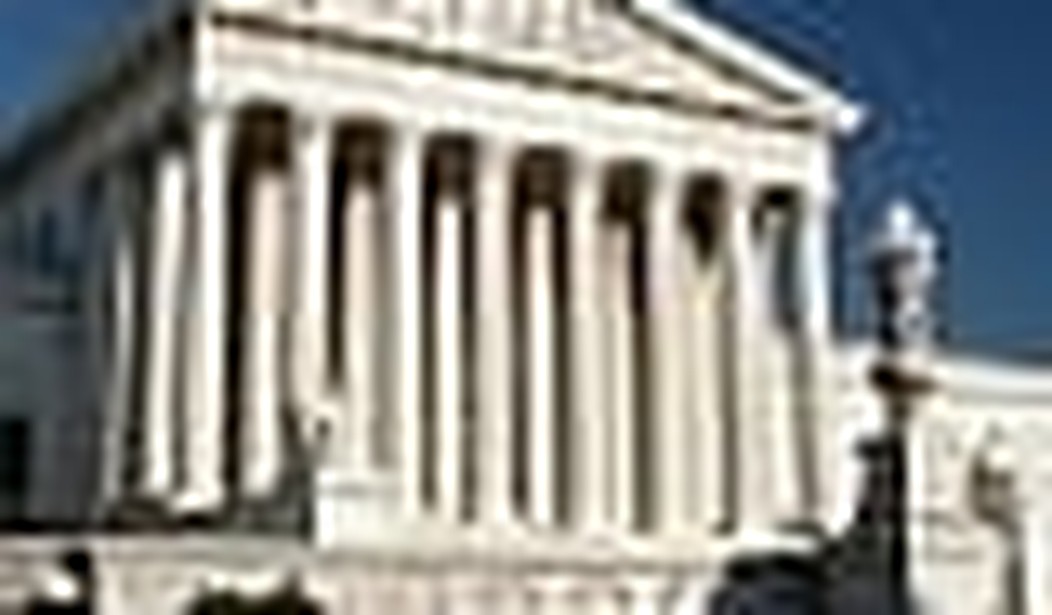On Thursday, January 21, the U.S. Supreme Court issued a ringing endorsement of core First Amendment principles. In Citizens United v. FEC, the Court struck down a law that prevented corporations and unions from spending unlimited amounts of money to advocate the election or defeat of candidates. The campaign finance laws have long paid grudging respect to an individual’s right to spend money on his own speech, but they prevented groups of individuals like unions and corporations from spending their own money on their own speech. The effect of this “vast censorship,” as the Court called it, was to “muffle the voices that best represent the most significant segments of the economy.”
To anyone who cares about freedom of speech, Citizens United is great news. The case is an important step toward bringing the campaign finance laws in line with a central premise of the First Amendment: that the marketplace of ideas must be left free in order to function and that allowing politicians to tinker with that marketplace by favoring some speakers over others is contrary to the very idea of freedom of speech.
Predictably, supporters of campaign finance laws are apoplectic. They are howling that the Citizens United decision contradicts a long practice of preventing corporate speech during elections and will lead to a corporate takeover of elections. They are wrong on both counts.
In fact, the Supreme Court did not address the issue of corporate rights to free speech in elections until 1978 in First National Bank of Boston v. Bellotti. Massachusetts prevented corporations from spending money to influence the outcome of ballot measure elections. The First National Bank of Boston challenged the law, which prevented it from opposing a measure to adopt a graduated income tax. Concluding that the bank’s status as a corporation did not remove its speech from the protections of the First Amendment, the Supreme Court struck down the ban. The First Amendment, reasoned the Court, does not allow government to decide who may speak on what issues. Nor does it permit the state to limit the voices of some to ensure that others may be heard. As the Court stated, “the fact that advocacy may persuade the electorate is hardly a reason to suppress it: The Constitution ‘protects expression which is eloquent no less than that which is unconvincing.’”
Despite its endorsement of corporate speech rights in Bellotti, a decade later the Court changed course and ruled in Austin v. Michigan Chamber of Commerce that corporations could be prevented from spending money advocating the election or defeat of candidates. According to the majority, corporate status is a gift from the state that can come with strings attached — namely, a restriction on independent spending during elections. This restriction was justified, as the Court saw it, because corporations can amass large amounts of money that “have no correlation to the public’s support for a corporation’s political ideas.” This, in turn, creates the potential that corporations will have a “distorting effect” on the debate.
The Court has now corrected that error and returned to first principles. Corporations are groups of individuals and have the same rights to speak as the individuals who make them up, no more, no less. The fact that state laws affect corporate status cannot be a basis for regulating them, any more than it could be a basis for deciding that married couples, partnerships, or membership organizations are not allowed to speak. Nor can it matter that any group’s views may not “correlate” with the views of the public. The First Amendment exists to protect dissent. No one ever wishes to limit speech with which they agree.
But won’t corporations be able to “buy” elections with their vast wealth? No more than they can buy market share with their advertising. If they could, we would all be driving American cars and drinking New Coke. If it were so easy to “buy” elections, Ross Perot would be president by now.
Money does not buy elections; it buys speech. It allows Wal-Mart to support the president’s health care plan just as it allows other corporations to oppose it. No doubt, some corporations will lobby for special favors, as Chrysler likely did during its bankruptcy proceeding. But protections for corporate speech will allow others — for example, Chrysler’s institutional bond holders whose investments were devalued during its bankruptcy — to express their dissent. In short, corporations don’t speak with one voice any more than individuals do.
Speech — even a lot of it — does not force anyone to agree. It leads to a debate. Those who believe that money buys elections implicitly believe that voters are too stupid to make up their own minds. The First Amendment — and at least the past two centuries of human history — stand as constant reminders that submitting to the temptation to allow government to tell us what to think is a very dangerous game indeed. We should be thankful that the Court has corrected its error and tossed out the ban on corporate and union speech in elections.








Join the conversation as a VIP Member